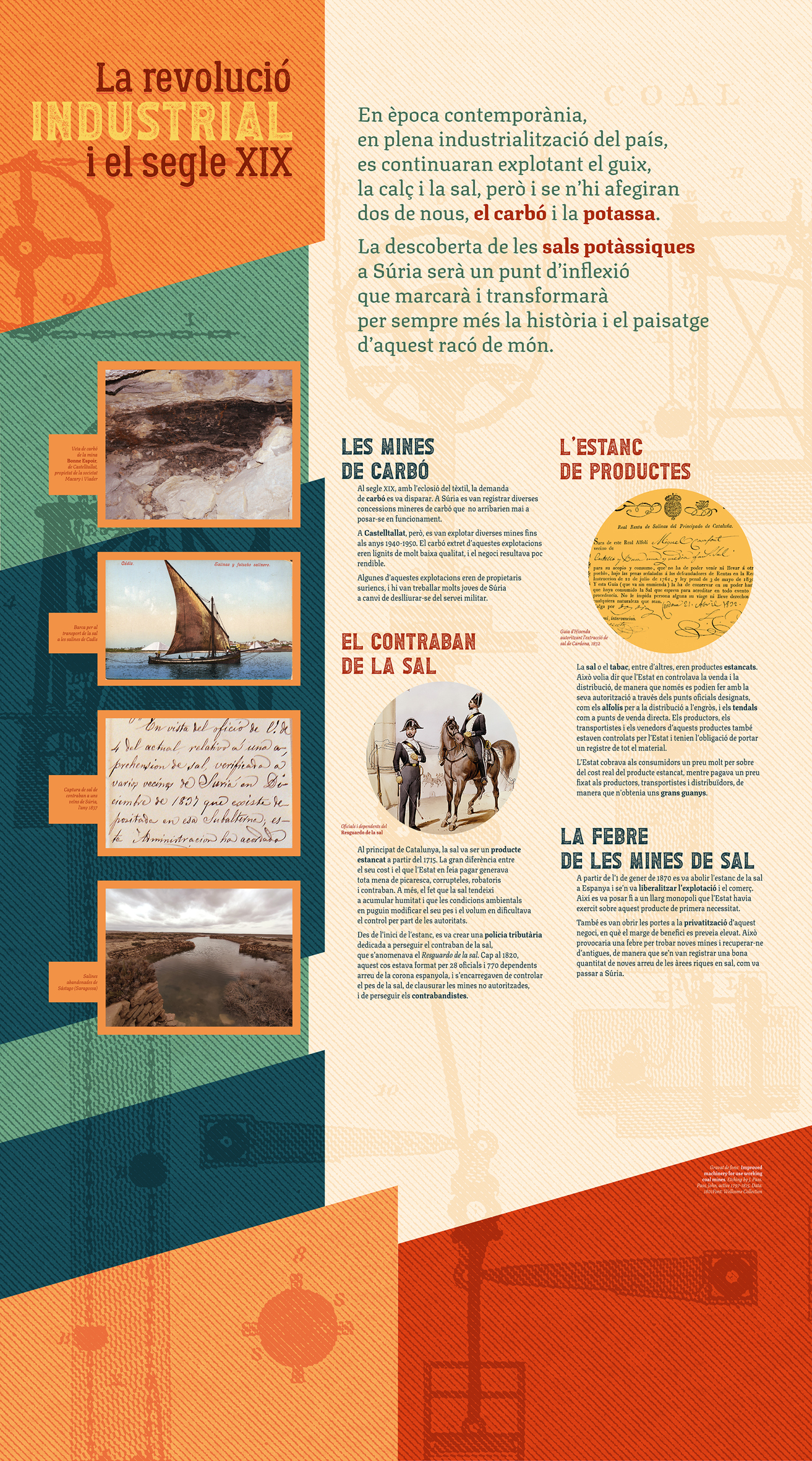2. THE INDUSTRIAL REVOLUTION AND THE 20TH CENTURY
In contemporary times, in full industrialization of the country, gypsum, lime and salt will continue to be exploited, but two new ones will be added, coal and potash.
The discovery of potassium salts in Súria will be a turning point that will forever mark and transform the history and landscape of this corner of the world.
THE COAL MINES
In the 19th century, with the rise of textil manufactures, the demand for coal soared. In Súria, several coal mining concessions were registered that would never come into operation. In Castelltallat, however, several coal mines were exploited until the years 1940-1950. The coal extracted from these exploitations was very low-quality lignite, and the business would be unprofitable.
Some of these coal mines were owned by Suria’s inhabitants, and many young people from Suria worked in them, in exchange for freeing themselves from military service.
THE STATE-RUN MONOPOLY PRODUCTS
Salt or tobacco, among others, were stagnant products by the state. This meant that its sale and distribution were under state control and could only be done with its authorization through designated official points, such as alfolis for wholesale distribution, and awnings as points of sale directly. The producers, transporters and sellers of these products were also controlled by the state, and were required to keep a record of all the material they traded.
The state charged consumers a price far above the actual cost of the stagnant product, while it paid a fixed price to producers, transporters, and distributors of the product. This whole tax system gave great profits to the state, which allowed it to finance its coffers.
THE SMUGGLING OF SALT
In the principality of Catalonia, salt was a stagnant product from 1715. The great difference between its cost and what the state made to pay for it, generated all kinds of mischief, corruption, theft and smuggling. In addition, the fact that salt tends to accumulate moisture and that environmental conditions can modify its weight and volume made it difficult for the authorities to control it.
Since the beginning of the state-run monopoly, a tax police was created dedicated to chasing the smuggling of salt, which was called the Resguardo de la Sal. Around 1820, this body consisted of 28 officers and 770 dependents throughout the Spanish crown, and they were responsible for controlling the weight of salt, closing unauthorized mines, and chasing smugglers.
THE FEVER OF THE SALT MINES
From January 1, 1870, the salt state-run monopoly was abolished in Spain and its exploitation and trade were liberalized. In this way, a long monopoly that the state had exercised over this basic necessity product was put an end to. The doors were also opened to the privatization of this business for capitalist investors; the profit margin was expected to be high. This fact would cause a rush to find new salt mines and recover old ones, to put them back into operation.
In the years following the liberalization of salt, a good number of new mines would be registered throughout the areas rich in this mineral, as happened in Súria.


